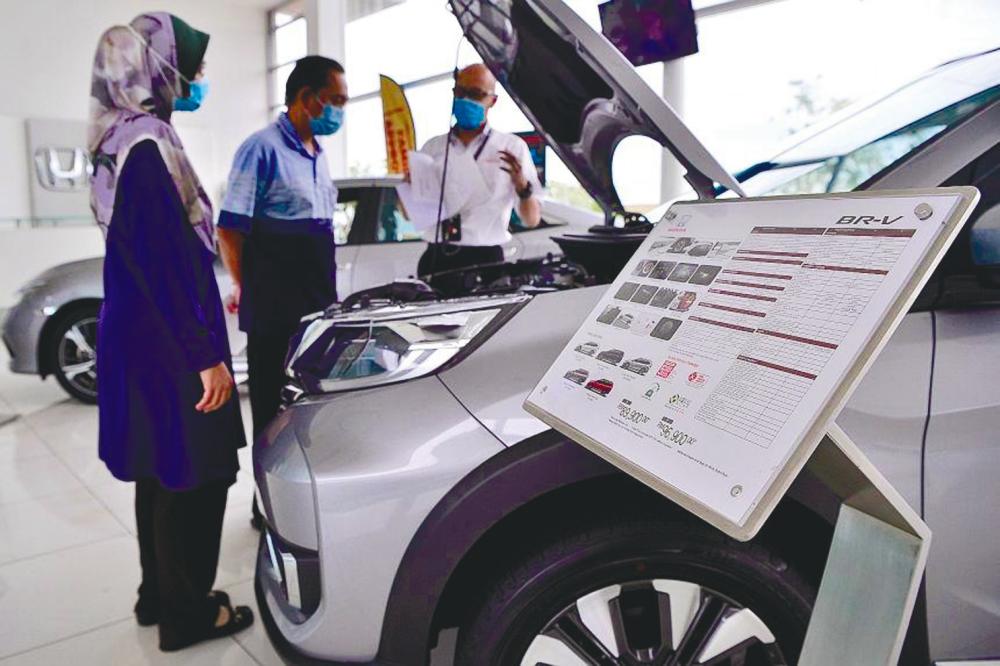PETALING JAYA: RAM Ratings has projected a steep decline in automotive demand in the second half of 2022 due to the resumption of sales and service tax (SST) from July 1, 2022 as well as unresolved supply issues, rising financial costs, inflation, a slowing economy, and fuel subsidy rationalisation.
RAM Ratings specialist Ben Inn said the forecast is mainly based on SST being reimplemented next month, despite a good chance that the exemption could be extended.
“The combined reimplementation of SST plus a gradual increase in car prices of up to even 10% seemed to be a significant pain point to drop bookings. A combined substantial increase in car prices will also reduce financing options for lower and financially tight consumers.
“We view the drop in demand to be naturally more severe for cars priced below RM100,000. While the more premium segment is less affected, this segment still enjoys tax-free options in electric vehicles although many models are also limited in supply,” he said at the RAM Insight Series: The Malaysian Automotive Sector – Is the Worst Over and Where Do We Go From Here? webinar today.
Inn said the continued increase in car prices is due to higher costs of raw materials, parts and logistics compounded by the weak ringgit as manufacturers in the sector are sensitive to foreign exchange fluctuations due to car import. Additionally, consumer demand will be dampened by higher inflation concerns on the economy, potentially tighter financing, and higher costs of car ownership from rising interest rates and fuel subsidy rationalisation.
“All things considered, we believe a total industry volume (TIV) of 600,000 units in 2022 is plausible. This figure assumes a significant drop in the second half, making up only an estimated 40% of the full-year TIV. However, this figure is dependent on the availability of critical parts as well as foreign workers,” he added.
However, RAM Ratings has estimated the TIV for this year could rise to about 630,000 units if the SST exemption is extended and the Ministry of International Trade and Industry’s new excise duty calculation is not deferred. In addition, the Covid-19 pandemic has benefited the used and reconditioned car markets as many commuters avoided public transport. The long waiting lists for new cars have also served these markets.
RAM Ratings expects the eroding demand to continue into 2023 as it does not see SST exemption continuing. Besides, Inn said, there is quite a lot of negativity on the regulatory front even if the SST exemption is extended.
“There is the added unknown from Miti’s new excise tax calculation and possible reimplementation of GST. Nonetheless, we do view that the government is unlikely to introduce a combined tax impact over a short period that has the effect of significantly raising car prices and eroding demand, thus negating the positive support to the sector gained from the two years of SST exemptions,” he said.
Some of the headwinds from 2022 are likely to continue into 2023, RAM Ratings said, including the rising car prices, potentially tighter financing, higher costs of living, concerns about economic growth, weak ringgit and higher car ownership costs.
The sharp rise in costs of necessities will erode consumers’ budget for discretionary spending, which could mean delaying buying a new car or buying used cars instead. The front-loading of purchases during the tax-free period will continue to weigh on the sector next year. Moreover, the rating agency said, supply issues, especially chip shortage, will continue to 2023 despite improvement in Europe.










